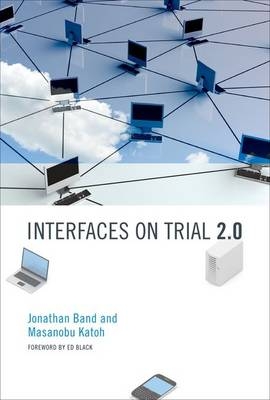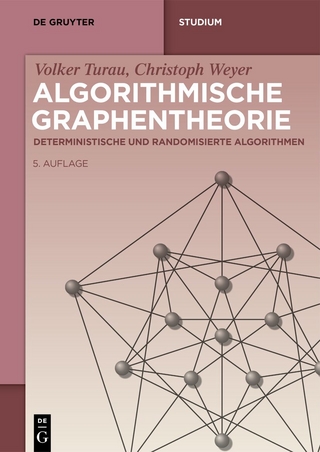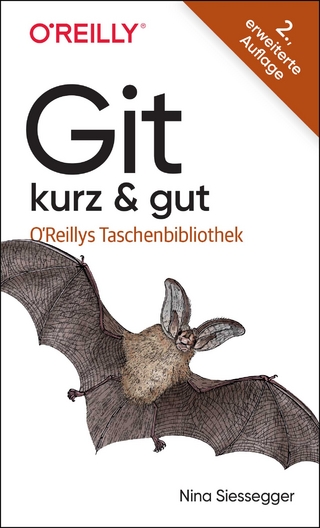
Interfaces on Trial 2.0
Seiten
2011
MIT Press (Verlag)
978-0-262-01500-4 (ISBN)
MIT Press (Verlag)
978-0-262-01500-4 (ISBN)
- Titel ist leider vergriffen;
keine Neuauflage - Artikel merken
The debate over the use of copyright law to prevent competition and interoperability in the global software industry.
We live in an interoperable world. Computer hardware and software products from different manufacturers can exchange data within local networks and around the world using the Internet. The competition enabled by this compatibility between devices has led to fast-paced innovation and prices low enough to allow ordinary users to command extraordinary computing capacity.
In Interfaces on Trial 2.0, Jonathan Band and Masanobu Katoh investigate an often overlooked factor in the development of today's interoperabilty: the evolution of copyright law. Because software is copyrightable, copyright law determines the rules for competition in the information technology industry. This book -- a follow-up to Band and Katoh's successful 1995 book Interfaces on Trial -- examines the debates surrounding the use of copyright law to prevent competition and interoperability in the global software industry in the last fifteen years.
Band and Katoh are longtime advocates for interoperable devices but present a reasoned view of contentious issues related to interoperability issues in the United States, the European Union, and the Pacific Rim. They discuss such topics as the protectability of interface specifications, the permissibility of reverse engineering (and legislative and executive endorsement of pro-interoperability case law), the interoperability exception to the U.S. Digital Millennium Copyright Act and the interoperability cases decided under it, the enforceability of contractural restrictions on reverse engineering; and recent legal developments affecting the future of interoperability, including those related to open source-software and software patents.
We live in an interoperable world. Computer hardware and software products from different manufacturers can exchange data within local networks and around the world using the Internet. The competition enabled by this compatibility between devices has led to fast-paced innovation and prices low enough to allow ordinary users to command extraordinary computing capacity.
In Interfaces on Trial 2.0, Jonathan Band and Masanobu Katoh investigate an often overlooked factor in the development of today's interoperabilty: the evolution of copyright law. Because software is copyrightable, copyright law determines the rules for competition in the information technology industry. This book -- a follow-up to Band and Katoh's successful 1995 book Interfaces on Trial -- examines the debates surrounding the use of copyright law to prevent competition and interoperability in the global software industry in the last fifteen years.
Band and Katoh are longtime advocates for interoperable devices but present a reasoned view of contentious issues related to interoperability issues in the United States, the European Union, and the Pacific Rim. They discuss such topics as the protectability of interface specifications, the permissibility of reverse engineering (and legislative and executive endorsement of pro-interoperability case law), the interoperability exception to the U.S. Digital Millennium Copyright Act and the interoperability cases decided under it, the enforceability of contractural restrictions on reverse engineering; and recent legal developments affecting the future of interoperability, including those related to open source-software and software patents.
Jonathan Band is an attorney who has written more than 100 articles on intellectual property and the Internet. He is an Adjunct Professor at Georgetown University's Law Center. Masanobu Katoh is the former head of the Law and Intellectual Property Unit of Fujitsu Limited, a global information technology company based in Japan.
| Reihe/Serie | Interfaces on Trial 2.0 |
|---|---|
| Vorwort | Ed Black |
| Zusatzinfo | 1 figure, 2 tables |
| Verlagsort | Cambridge, Mass. |
| Sprache | englisch |
| Maße | 152 x 229 mm |
| Gewicht | 522 g |
| Themenwelt | Mathematik / Informatik ► Informatik ► Software Entwicklung |
| Recht / Steuern ► EU / Internationales Recht | |
| Recht / Steuern ► Öffentliches Recht ► Umweltrecht | |
| ISBN-10 | 0-262-01500-5 / 0262015005 |
| ISBN-13 | 978-0-262-01500-4 / 9780262015004 |
| Zustand | Neuware |
| Haben Sie eine Frage zum Produkt? |
Mehr entdecken
aus dem Bereich
aus dem Bereich
Deterministische und randomisierte Algorithmen
Buch | Softcover (2024)
De Gruyter Oldenbourg (Verlag)
64,95 €
Programmieren erlernen und technische Fragestellungen lösen
Buch | Softcover (2023)
Springer Vieweg (Verlag)
44,99 €


